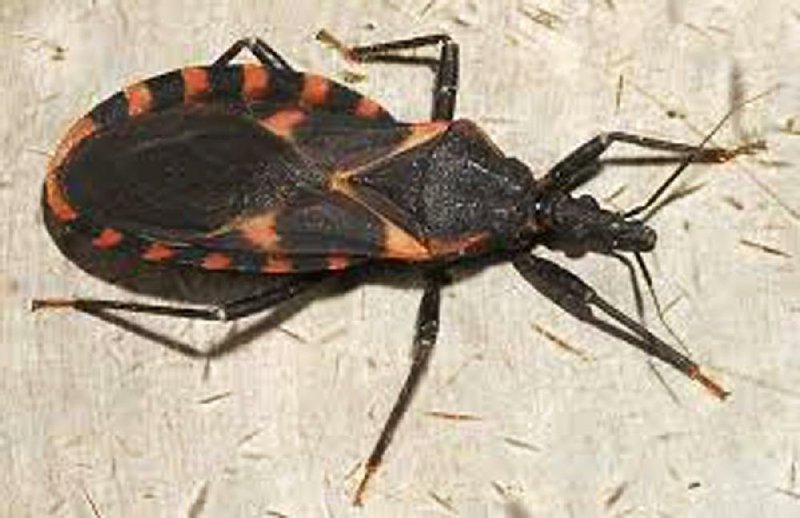Health officials have found a parasite in a common Arkansas insect, but they say people shouldn't be too concerned about catching a disease from it.
The insect, commonly called the "kissing bug" because it bites people on their uncovered faces while they sleep, carries the parasite that causes Chagas disease, said Kerry Krell, a spokesman for the Arkansas Department of Health.
Officials with the Health Department said the insects have been found in the state for years, and there been only two documented cases of infections. Both cases were contracted in Central America.
Still, they are encouraging residents to check their homes for the bug. If they find any, residents should put the insect in a clear plastic container of rubbing alcohol to kill it and then take it to their local county health units.
Workers there will send the insect to the U.S. Centers for Disease Control and Prevention in Atlanta, where it will be screened for the Chagas parasite.
"It's not a huge risk in Arkansas," Krell said. "We've had kissing bugs in Arkansas for years. The disease is not common here."
There are 11 species of the triatomine, but only one carries the disease. The "kissing bug" is black with orange spots and is slightly larger than a dime. The parasite is in the bugs' feces. When a bug bites someone, it defecates and the feces infects the bite wound.
Most cases of Chagas have been found in Mexico and Central and South America where the bugs are prevalent. Symptoms include fever, body aches, chills and sluggishness. Left untreated, the infection could lead to heart disease and meningitis.
Residents in Jonesboro and Jacksonville have recently found the insects in their homes, Krell said.
"We want people to be aware of this bug and the potential for disease," Krell said. "If you see it in your yard, leave it alone. If it's in your house, it's best to catch it."
Officials will also conduct tests to determine if the Chagas parasite is in dogs.
Archie Ryan, a Jonesboro veterinarian, will lead a team in inspecting blood taken from stray dogs in kennels around the Arkansas Delta. Dogs with the Chagas infection show symptoms similar to heartworm, Ryan said.
"The Chagas could be in dogs," he said. "We don't usually diagnosis that. It mimics heartworm, and by the time vets get around to figuring out it's Chagas, it's late."
Ryan said a person took a dog to his office Tuesday that may have the Chagas parasite.
Ryan said he anticipated completing his testing of dogs by the end of the month.
State Desk on 08/07/2014
